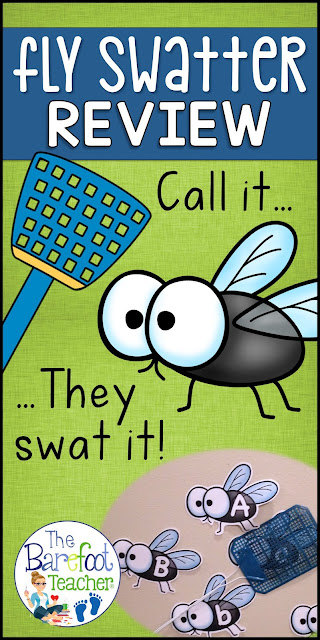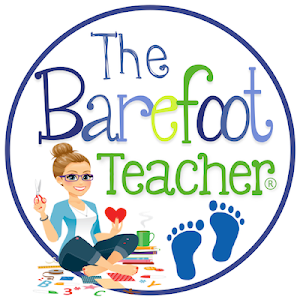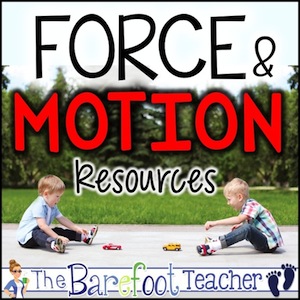Laying the groundwork for what type of culture your classroom will have requires preparation. You cannot expect to just 'wing it' on your first day when it comes to setting the tone of your classroom.
Your students will be taking their cues from you!
Think about what you want your classroom atmosphere to reflect.
Positivity. Encouragement. Success. Happiness. Peacefulness. Collaboration. Teamwork.
Take a few seconds right now to briefly jot down some words that describe how you want people to feel when they step foot in your room.
Now how do you get your classroom to be that way?
By being
organized,
prepared, and
calm!
This includes both in the physical classroom itself, and for you personally as well.
Make sure your classroom decor is ready on the first day of school.
MPMSchoolSupplies.com can help you with that! For example, if you're waiting to to put up student work on the bulletin boards or in the hallway, then make sure to at least have your
background paper,
borders, and title on the board and ready to go. It will set the feel for your students as they enter your classroom on day 1.
If you're not quite sure (like I was one year) how you want to set up your reading area, or you don't have all your
decor quite yet. At least have it set up with a few chairs around a
rug next to the books so that it appears set up. You can move things around and finalize it later, but to the kids- they'll see a fully ready reading spot just waiting for them to sit down in! Here's a pic of me the year I wasn't quite ready and had to make it appear that it was for the first day:
Make sure that your lesson plans for the first few days are nailed down. I've known some teachers that map out those first few days to the minute, and I've seen others (this is my method) who simply make a prioritized check-list of things that need to be done.
Also...over plan.
And know that
IT IS OK if you don't get to everything you had hoped to for each of those days! Let me say that one more time:
It IS OK if you don't get to everything you had hoped to.
We're going to cover more of this in #2.
Keep yourself calm!
No matter what, take a deep breath and either remain calm at all times...
or FAKE IT! Haha!
Know ahead of time that your plans will most likely change at some point in the day, and that is perfectly fine. The best advice ever given to me opened my eyes to a great secret.
Ready for it? Here it is:
The kids don't know your lesson plans!
That's right!
If you change things up, or make a mistake...they have no clue.
Absolutely no idea.
Did you lead them to music instead of gym? Just tell them that you wanted to take them on a (long) detour so that they could wave hello to the gym teacher on their way to music.
If things on the first day are starting to get a little too chaotic, then stop what you are doing and be spontaneous. Take a quick walk outside to look at nature. Or grab a favorite picture book to read them. Sing a song. Play Simon Says. Walk around the school. Take them out to pick DANDELIONS! (You know they love to!)
Do whatever you need to get yourself and your students back to where you need them to be...calm. In almost every case, if you stop to relax, then the kids will too.
I learned this lesson a long time ago on my first day of student teaching. I was placed in a fifth grade classroom, and there was a boy who started acting up in the craziest ways. My cooperating teacher was such an amazing role model of what calm looks like. Even when she was very upset, you could hardly tell. The boy got to be so out of control, that she needed to remove him from the classroom. "Can you take over for just a bit?" I remember her asking.
Who, me??! Panik washed over me!
It was obvious she had to take care of the situation, so with a deep breath, I winged it.
I don't even remember what I did with those students. But later that day, as we reflected on the events of the day, I remember her telling me about how it didn't really matter that she hadn't covered everything in the perfect way that she had planned. What mattered most was that a peaceful atmosphere was established, despite the events that had transpired. She had taken the time she needed to care of the things that mattered most, thus setting up the tone for the next day.
It is more important to set an appropriate tone in your classroom than it is check off the activities to-do list in your plans.
Which takes us right into our next tip...

As you think about what needs to be done on those first back-to-school days, set up a system that helps you make sure you
do get to the most important activities of the day.
When it comes to your plans with students, maybe put a star by what needs done no matter what. Or order them by importance from morning to afternoon so that if you are running behind, you can at least rest assured that important tasks were taken care of.
Also prioritize your own to-do list.
I can't tell you how many times I've wandered around my classroom, not really accomplishing anything at all, simply because I was so overwhelmed that I didn't even know where to really start! You don't want to waste a single minute of your time at the beginning of the school year, so keep a notepad handy and jot down things as you think of them throughout the day. If it's super important, put a star next to it so that when you get your plan time, you know exactly where to start.
Great work plugging through all this info. Reward yourself with a FREE DOWNLOAD!
September Common Curriculum Everyday for Kinders is aligned to the Common Core standards and helps your students learn how to work independently while mastering Math & ELA skills at the same time!

As teachers, we set goals for so many things. So why not make some specifically for back-to-school days? These goals will look different for everyone. Take a few moments and think about what you would really like to accomplish most with your students the first two days of school. Jot them down real quick so you don't forget.
Now think of some goals you'd like to accomplish for yourself. Maybe you want to collaborate more with teammates. Or pack your lunch every day so your not running out (or starving) on break. Some other ideas might be to compliment students a certain amount of times for the day, or spend some time getting to better know a student (or even fellow teacher). Or how about spending just 2 minutes in complete silence with your eyes closed on a break, just to give yourself a chance to re-gather your thoughts and energy.
Meeting goals, no matter how small they might be, will make you feel successful and...HAPPY! So write them down and check them off as you complete them. Remember to make a variety of goals that range from small to large.
Here is a weekly planner that will help you stay organized while meeting your goals:
Weekly Planner

Create your rules. Know them by heart. And follow them!
Sounds simple, right? But I can't tell you how many teachers I've heard complain about how students aren't following the rules in their classroom. Yet, there's no evidence of them being held accountable to follow those rules.
Let's start with creating your rules.
Think K.I.S.S.
(Keep It Simple...Silly?!)
Your classroom rules should be simple and easy to remember. Figure out 3-5 rules and know what consequences will be given for each rule if it is broken. Post your classroom rules large, in a place that is well-seen. Refer back to them often, especially through the form of positive reinforcement!
For example, maybe one of your rules is to show respect. And you notice that many of your students are raising their hands and waiting patiently to be called on. Praise them and refer back to the classroom rules that are posted!
For example: "Great work Bobby! You remembered our classroom room of showing respect!" Then address the class and explain to them how Bobby's action (in this case, raising his hand) demonstrated respect for his teacher and his classmates.
Now what about when students don't follow the rules you've established? What are you going to do? Make sure to have your consequences laid out, keeping them simple, and easily seen and known. And most importantly, stick to them! You cannot complain about student mis-behavior if you are not enforcing the rules system that you've set up.
Finally, make sure you're following your own rules.
Say what?!
Yes, I said it. Make sure that you (you know, the teacher) are following your own rules.
Demonstrate to your students how to be a good listener by not interrupting them when they are speaking to you. Show your students how to be respectful by watching what you say to a fellow teacher passing by in the hallway, or who stops by in your classroom.
Your students will watch every. single. thing. that you do! So make your actions count. If they see that you don't follow your own rules, then they may not choose to either.
Think about it.
Time for another FREE DOWNLOAD!
(You didn't forget about those did you?!)
This one comes from my
Nursery Rhymes Poetry Book.

This tip is so, so important.
I have found that the best way to make early & frequent contacts with the parents of my students is to keep some type of document with student names on it. Some kind of a spreadsheet or checklist that will help you keep track of when and why you contacted a parent.
You want to make more positive contacts than you do negative ones.
(Another reason to keep track!) So go ahead and get one of your parent contacts out of the way for each student right at the beginning of the year. It doesn't have to be lengthy. Just something to connect you with them as the year starts.
To help you make sure you stay on top of making positive contacts with parents, pre-address a bunch of post cards or envelopes for each student. Make 4-5 for each kid in your class. You'll be more likely to send those off more frequently if they are already addressed. To make this process go even faster, type out each students address onto labels and then run them through the copier on labels stickers. Stick them on all your postcards, and you'll be set! Then each month, pull out your stack, jot down some quick notes about how amazing the student is and send it on its way!
Build relationships with three different groups of people this school year:
your students, their parents, and your fellow staff members.
The best way to build relationships with your students is to ask them questions and be a good listener. Students LOVE to talk about themselves. I mean, don't we all! As humans, we like to share things in our lives that we've done or accomplished. And we like to feel valued and listened to.
How can you be a good listener?
Put whatever you're doing down! Unless you're doing something like individual assessments, or something that students know they should not be interrupting, then stop what you are doing. Make eye contact with the student. Repeat what they said to show that you were paying attention, and respond.
If you're on recess duty with other teachers, don't spend that time as a social hour to catch up with your fellow teachers (though it sure it tempting at times!). Use it to walk around and talk with students. You can still monitor while you ask them questions and make comments about their talents and interests! Trust me, this is a quick and easy way to show your students you care.
Don't forget their parents! We already talked a little bit when discussing parent contacts. But you can go beyond just updating the parents on their student's progress. How? Short and simple comments to show that you care about getting to know them too! For example, it's pickup time and you're standing outside with your students. A parent comes up to get their little sweetie and you notice they are carrying a Thirty-One bag (I think I just saw every teacher reading this perk up, haha!). You love those bags too, so take three seconds to use that as a connection. Ask them what their favorite bag style is or if they have others. You get the point, it doesn't have to be Thirty-One. Maybe a student confided that a grandparent passed away. Use that as an opportunity to connect and let the family know that you're thinking of them. Little things you do to connect will stand out big.
Don't forget your fellow staff members! Make an effort this year to get to know some of them better. Of course we all have teachers that we connect with better than others. So besides getting to know your teacher-besties even better, be sure to also spend some time venturing out of your comfort zone to meet and get to know others too. You never know what connection you'll make once you get to talking with someone new. Plus, you're building up your school in a powerful way too!
Here are some
FREE Student Information Sheets that will help you get to know your students better this school year.

Know where you can get help.
Is there a fellow teacher on your team that can help you if something unplanned happens during the school day? Do you have your office and/or social worker extensions highlighted near your classroom phone for quick and easy access? Is it your first year - chances are that your school can offer you a mentor teacher.
Social media groups can also offer some great ways to meet up with other teachers that are in similar situations as you are. It gives you a chance to reach beyond your normal circle in the building you work at, and see what the rest of the world thinks about a certain circumstance you're dealing with, or a particular topic you're trying to more effectively teach.

Taking care of yourself, the teacher, is super important! You need to be and feel your best so that you can be there for your students. They are going to drain your energy, so you must stock up as much of it as you can. Not taking care of yourself will lead to a quick burnout.
So what do you need to make sure you do?
Make sure you don't skip breakfast, or skimp out on it either. We've all heard that it's the most important meal of the day - and it is! You'll have a ton more energy if you eat a good, healthy breakfast.
Speaking of eating healthy, stay away from all the junk in the teacher's lounge! That sounds so cruel, doesn't it? But we all know what's in there. Plates of brownies and cookies, sometimes even cake, and all sorts of other baked goods. Chips and dips. Donuts. Candy, candy, candy. Need I even keep going?

Now I'm not saying stay away from the teacher's lounge itself, but keep your distance from the snack table. Maybe sit farther from it than you normally will. Eating too many junk snacks during the school day is going to make you feel sluggish the rest of the day.
Get excersize. Ecersize? Exercise.
Phew, got it, haha.
Sidebar: Exercise is my word. We all have one...a word that no matter what you've done you're whole life, you just can never remember how to spell it? And you keep spelling it over and over until the squiggly lines disappear under it? Well, exercise is my word.
Back to exercise...get lots of it!
Take advantage of recess duty and run around with the kids, play tag (while monitoring of course) or join them in a game of kickball. Take a brief walk through the halls during a break. Just a few minutes to get your heart racing and your blood flowing. Make a habit to spend a half hour doing some sort of activity immediately after school. Not only will you feel good afterward, but you'll feel relaxed from work too!
Also make sure you're getting some time to yourself. Find things you like to do that are not school related, haha! I know, it's hard. But don't spend all of your time at home preparing for school. Get a hobby too!









































































